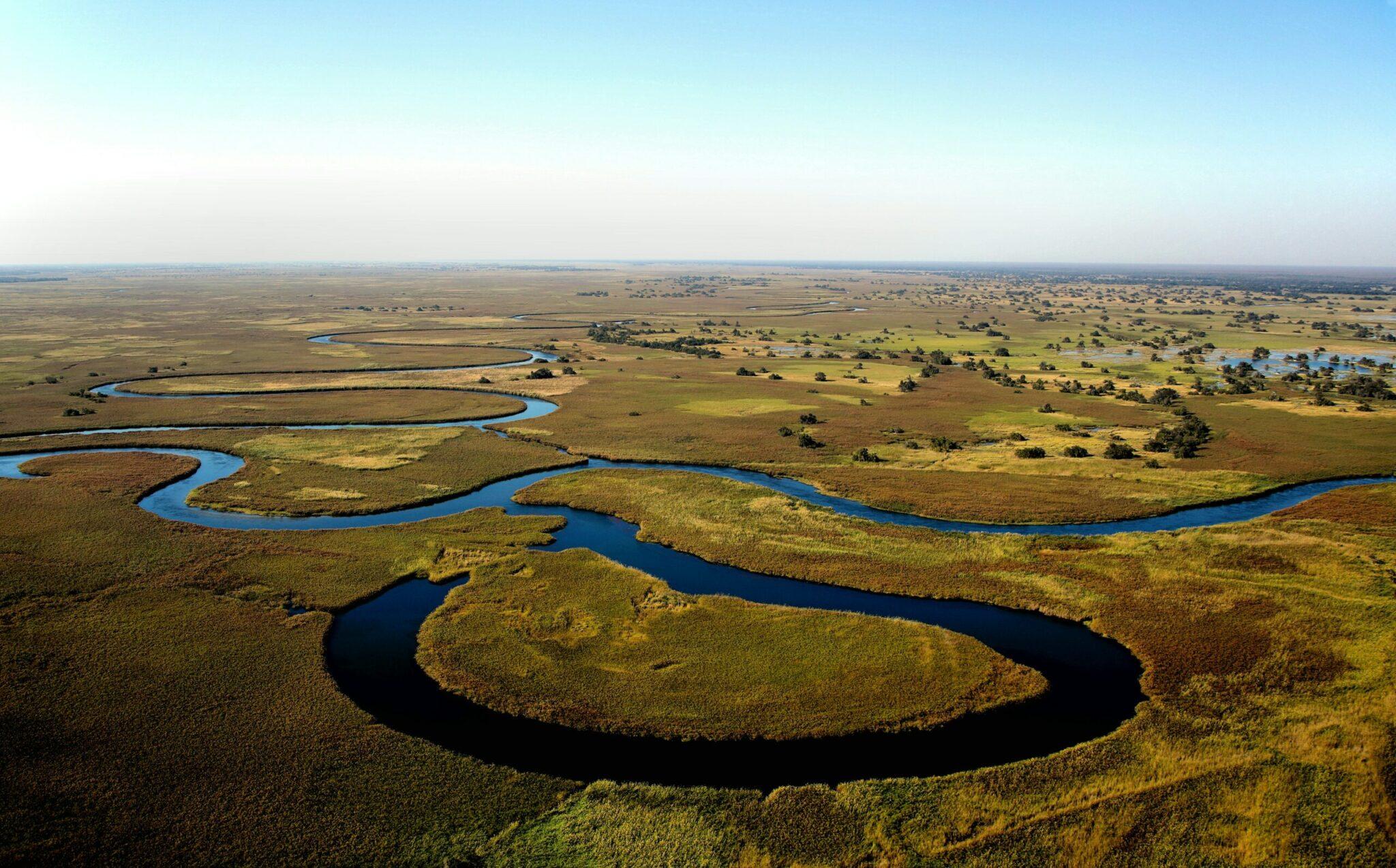

No big game hunting safari in Botswana is complete without the hippo (Hippopotamus amphibius). One of Africa’s Dangerous 7, these herbivorous mammals are renowned for being aggressive, territorial, and downright vicious at times, and the cause of death of more than 500 African inhabitants on an annual basis. If this sounds like the perfect trophy for those hunters interested in a dangerous big game hunting safari, read on! Often referred to as a “land whale,” a hippo bull tips the scales at around 3,300 pounds, and in extreme circumstances reaches over 9,000 pounds! Hippos are found throughout sub-Saharan Africa and these semi-aquatic animals spend up to 16 hours a day in water and prefer habitats such as rivers, estuaries, and lakes. Not only are they kept cool and watered, but their skins are also protected from the heat and the harsh, hot, African conditions.
When hippo hunting, you are definitely in for an exciting big game hunting safari in Botswana! The Okavango Delta, with its lush, rich vegetation, together with its wonderful range of waterways, is the prime hippo hunting ground in Botswana. This open, free-range hunting style allows Botswana hunting safaris to experience the African of old on these exciting hunts. During your Botswana hunting safaris, you may find it difficult to differentiate between a mature bull, ready as a game hunting target, and other hippos, especially when they are submerged in water. Firstly, males are larger than females when it comes to heads, necks, and tusks. Secondly, a prized male hippo will sport two bumps on either side of its nostrils, where the tusks push up when the hippo’s mouth is closed.
Shot Placement while Hippo Hunting in Mozambique
When hippo hunting in Botswana, your hunt will be undertaken in numerous ways including a walk-and-stalk along the banks, approaching the animal in a traditional canoe (mokoro) and then doing a walk-and-stalk, or lastly targeting the hippo while they are on dry land. When approaching the hippo herds in the mokoro, be extremely cautious, as they are known for approaching and tipping vessels and attacking the occupants. The hunting method of enjoying a hippo hunting safari on land is exceptionally dangerous and usually undertaken at night while the hippo is on land, feeding, or traveling to or from the water while feeding. If cornered, the hippo will either charge at the hunter or head straight for the water, regardless of what is in its path. As with all dangerous or big game hunting endeavors, once you are in position, your shot placement is critical. If your shot placement is not spot on, it can result in the hunting safari going south very quickly. A reminder that you are not dealing with a gentle antelope here, but rather an aggressive, dangerous, and menacing member of the Dangerous 7.
There are a couple of options available for shot placement when hippo hunting in Botswana, depending on various factors they could include: The Frontal Brain Shot The Frontal Heart Shot Broadside Brain Headshot Headshot Facing Away from the Hunter The Fleeting Shot The Heart and Lung Shot The Neck Shot
What Caliber Rifle can I use when Hippo Hunting in Botswana?
Hippo hunting in Botswana calls for some big gun options and when on a hippo hunting safari, there is no such thing as too much gun. A minimum requirement for big game hunting in Africa is a .375, together with a 300-grain bullet. Your target on this hunting safari has an extremely thick skin and skull, and this needs to be considered when choosing the correct rifle to get the job done seamlessly and humanely. A solid bullet is also suggested, for better penetration. When targeting a hippo outside of the water, with the hunter close to the target and engaged in a broadside shot placement option, a suggested rifle would be a .416 Rigby or 500NE, to enter the heart for an accurate kill shot which will get your trophy into the salt quickly.
Search from our range of Hunts across various popular destinations in Africa.
Book Your Hunt